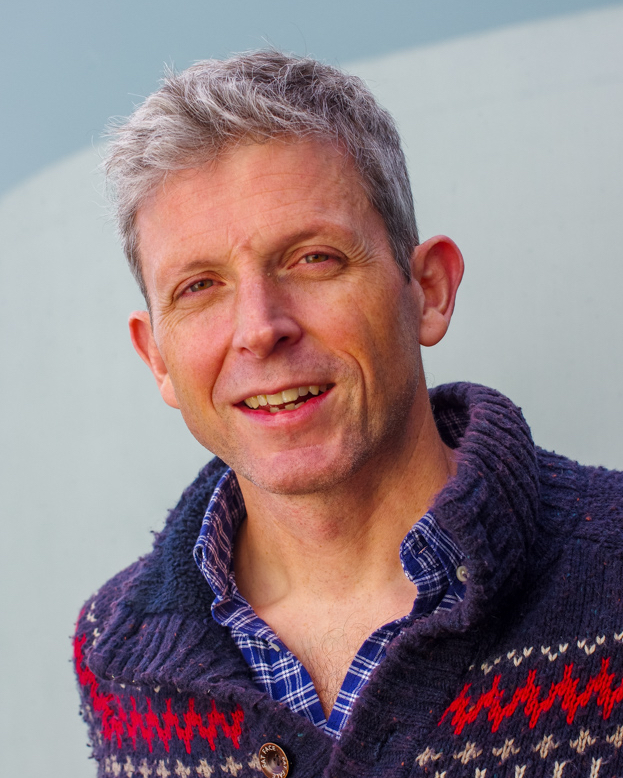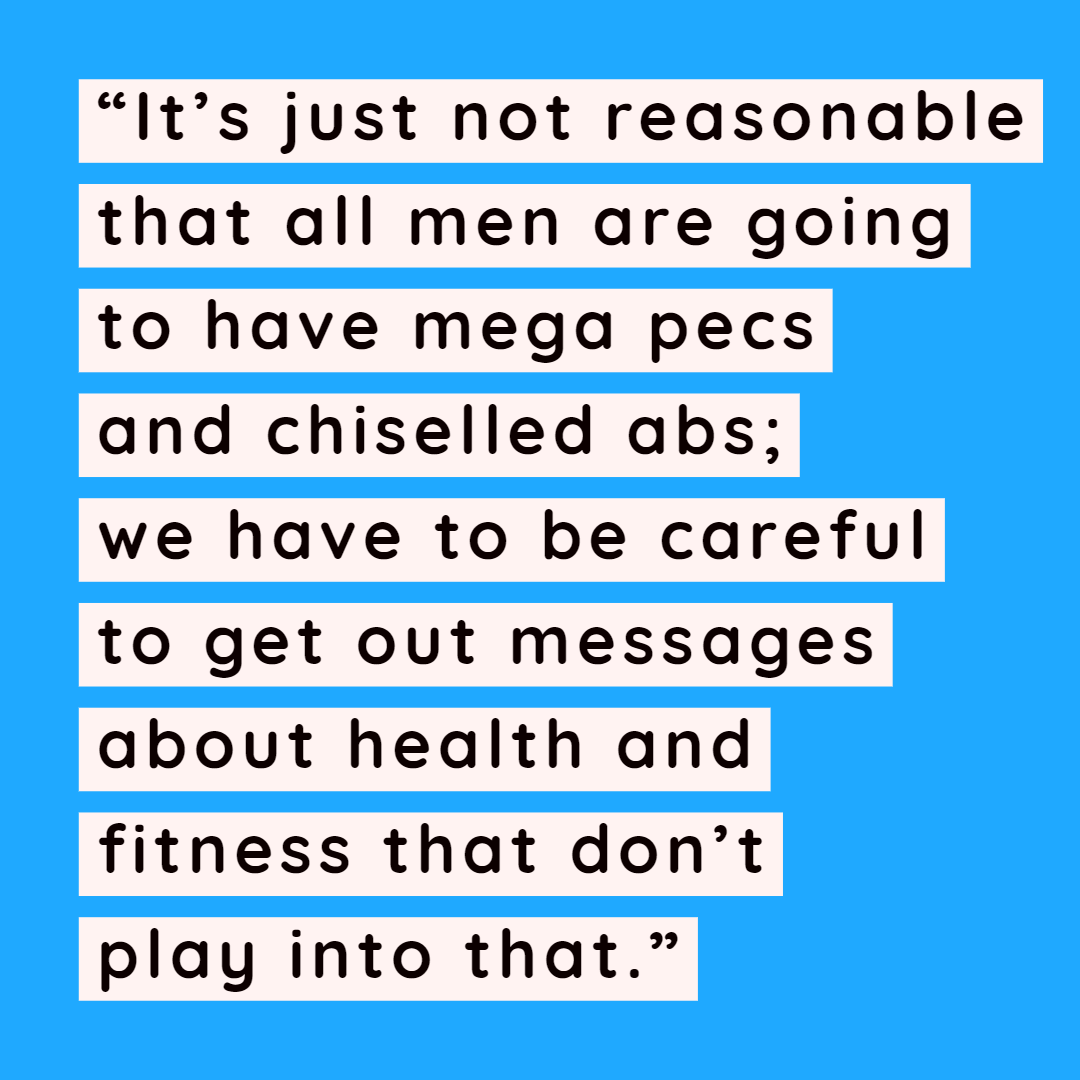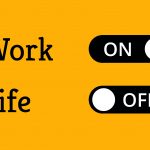I think Euan Lawson is a fascinating character. He’s one of those people who has lived 100 lives. The dad of three served as a doctor in the army for a number of years before becoming a GP and latterly, he has worked as Director of Primary Care Academic Teaching at Lancaster Medical School (in other words, he trains doctors). Euan has a particular interest in men’s health, a subject he discusses a great deal on his Blokeology podcast.

It was through Blokeology that I was introduced to Euan. He’d somehow found out about my blog and asked me to appear as a guest, primarily to talk about how I keep in shape.
During the discussion, I mentioned that I had given up running because of ongoing issues with my ankle. I’d been having trouble with it for some time thanks to an injury I sustained as a teenager. Euan made a passing comment about what the problem might be and this inspired me to seek a more detailed medical examination. It transpires Euan was correct and I am presently on the waiting list for physiotherapy to get that ankle working properly again.
That said, Euan has some great advice and tips for men. He has realistic suggestions for staying in shape but is also passionate about getting men to talk about prostate health, mental health and heart disease. Here’s what this advocate for men’s health had to say.
Can you please introduce yourself Euan and your interest in health?
Sure! Well, I’m a doctor, a GP. I still do clinical work but nowadays I spend most of my time helping to train medical students at Lancaster Medical School. I’ve always been someone that really appreciated the benefits of getting exercise and being physically active but, like many people, I’ve not always found it easy to build good habits. I’d go through that common pattern where I would run for a few months then I’d ‘fall off the wagon’ and not doing anything for weeks and have to restart. You may know the feeling…
Over the past few years I’ve become much better at sticking with it and I’ve developed a very consistent habit of exercising. Along with some other lifestyle changes it has given me tremendous benefits and talking to other middle-aged men and fathers in my job has made me recognise how important it is to help people get active, eat well, and understand a little behind the science of it all.
I’ve always been a doctor that has been very enthusiastic about using good quality research and evidence to try and change my behaviour and to advise patients. I love to delve into the detail of research to pick out the important messages. I also feel it’s very important to try and help people understand the complexities of research to help them make good decisions.
You have had the most amazing career taking in a spell in the armed forces, working as a General Practitioner, writing numerous books and are now Director of Primary Care Academic Teaching at Lancaster Medical School. How do you fit this all in?
I’ve been very lucky and I have been able to squeeze quite a few different aspects into my career. I’m 47 and I have been qualified as a doctor over 22 years now so that does give me a bit of scope to have done a few different things. I worked as an Army doctor in Germany, Bosnia, and Brunei and it did give me some great experiences.
Fitting it all can be hard and I’d like to say I don’t watch any TV or I have some ninja routine of getting up at 4am but I don’t! I do enjoy some telly and I get a solid 8-9 hours most nights. Actually, that might be a good recipe for success – get enough sleep and do enough exercise. It’s amazing how things slot into place if you can get those basics right.
I suppose, more than anything, it’s easy to do certain ‘work’ when you enjoy it. I love writing and don’t tend to regard it as a chore. It certainly takes time, but it gives me a lot of deep satisfaction.
Tell us a bit about your family background. Do you have kids and what’s your fatherhood journey been like?
I have three kids, aged 12, 13 and 14. We are getting the full blast of teenage hormones in our house now. I take consolation in that, although the pressures are still there, it’s not the same as the sleep-deprived nappyfest we enjoyed when we had three kids under three! I left the Army just a few months before my eldest was born and I’ve been very fortunate to have been able to be there for my kids. I have worked full-time but I’ve gravitated towards jobs that have been inherently flexible and so I’ve been able to give them a lot of time when they were at a young age. That balance has made fatherhood a very positive experience. So far at least!
I was very keen to do a Q&A with you because of your interest in men’s health. I think men are showing a greater interest in health and fitness, but women are still more open to discussing these issues. Fair comment?
There does seem to be a rising tide of interest in men’s health but I agree that women have had a head start here. I’m also wary as women have had to deal with a lot of unrealistic expectations about body image and I think we’re seeing some of that with men as well now. It’s just not reasonable that all men are going to have mega pecs and chiselled abs; we have to be careful to get out messages about health and fitness that don’t play into that. It’s ‘normal’ men I like to try and speak to about health. Not the super-fit end of the spectrum, it’s more about the blokes out there who are trying to juggle all the commitments life throws at them but who want to stay healthy and get a bit fitter.
There is also a risk that some of the health messages for men have been quite negative with talk of ‘toxic masculinity’. Many of the researchers in the field don’t feel that’s a good term but there are many health topics that are particularly important for men to tackle – for themselves of course, but also because everyone around them will benefit as well. I’m keen to try and address those without that negativity.
You’ve written several books, one of them called The Healthy Writer. Can you tell us a bit about your writing?
The Healthy Writer was a collaboration with a bestselling author, Joanna Penn, and was all about helping people who, by the very nature of their jobs, spend a lot of time sitting down not moving much. Many of us can relate to that to these days. At the end of that project I also wrote a short ebook, the Healthy Bloke Action Plan, that men can use to do a quick, evidence-based, assessment of some key areas in their life. I love writing about health and send out a regular newsletter with advice – anyone can sign up for that and get the Healthy Bloke Action Plan for free at blokeology.io/journal.
And of course you record and broadcast the Blokeology podcast. What inspired you to start that?
I do love podcasts. They are a wonderful format and I’d encourage anyone to explore them. The best thing is that they cover all kinds of niches from all sorts of enthusiasts. I have been frustrated for many years by the quality of information available to people on medicine and research. A lot of reports you read in the newspapers or online are gross simplifications or just re-hashed press releases with very little depth to them. Most health topics are complex but perfectly understandable to people if they get presented in the right way. A podcast felt like a brilliant way to explore men’s health by interviewing experts, academics, and lots of other people who know their onions, so Blokeology was born.
On the subject of men’s health, prostate health is a big issue, especially prostate cancer. Should men see their doctor to discuss prostate health and when should they get PSA tested?
I think it’s a brilliant idea to get along to your doctor and talk about your prostate. I recently interviewed a professor of anatomy and he pointed out that 50% of men can’t find their prostate and 15% didn’t know they had one! Understanding the symptoms and signs of potential prostate problems is an incredibly important aspect of diagnosing prostate cancer.
Prostate cancer is a complicated subject and one of the difficulties is that often, although it can found in an incredibly high number of older men, it sits there very quiet and doesn’t cause much bother. Treating those men isn’t always a good balance of risk and balances. Unfortunately, as we know, at other times it can be very aggressive with tragic consequences and clearly we want to treat those with everything we’ve got. But telling those different types of prostate cancer apart is not always easy at the moment.
PSA testing is an important topic. The big question men ask is: if you have no symptoms and feel absolutely fine should you get a PSA test as a check-up? A lot of blokes think this makes sense, a kind of MOT, and think it can’t possibly do any harm. In fact, PSA isn’t always a great test as it can be raised for non-serious reasons. The problem then is that the men get subjected to a whole lot of tests that can have quite serious adverse effects like impotence and even incontinence. Those are rare but they do happen. This is a huge downside of PSA testing and isn’t often appreciated by men having the test. That said, there are still some men where it could be helpful – especially if there is a strong family history for example. Then the evidence tilts towards PSA screening a bit more. It’s complicated!
So, as I said at the start, I’d recommend a good chat to your healthcare professional if you are thinking about it. I interviewed Prof David Cranston, a urological surgeon, in Episode 054 of Blokeology and we discussed prostate cancer and PSA in depth.
Of course one of the biggest killers of men is suicide. This is a very real subject for me at the moment. Over recent months I have known two men in their forties take their own life. Depression is often a factor but what should men do if they think they may be experiencing depression?
It is a terrible fact that for men in their 40s suicide is the biggest killer and scarcely any of us are left untouched by these tragic deaths.
I’d encourage us all to look out for our mates. When was the last time you got in touch with that buddy? Try to find time for conversations. Fatherhood can often leave men more isolated and there is evidence of postnatal depression in men as well as women. Many people worry about going to the doctor to talk about depression but it’s worth remembering that we do this all the time. It’s incredibly common. And, there a range of ways to help people who are depressed. Sometimes we use medication but talking therapies and physical activity have a huge role to play as well.
This can be really hard but if you do speak to someone and you are at all worried about suicide then it can be very important to try and talk about it to them. The Samaritans have some wonderful resources on having difficult conversations with people who might be depressed or suicidal and how to get more help as well.
Social isolation and loneliness can also be contributing factors when men take their own lives. I have worked on charity projects in the past to encourage men to build strong connections and I think it is vital. What opportunities exist for guys to build such connections?
Yes, you are spot on. We used to think that loneliness was a problem that only affected the elderly but there is now evidence showing it is something that can damage people of all ages. And it has a real physical effect with increased risk of bad outcomes like heart attacks and, worryingly, even death. Around eight million men in the UK admit to feeling lonely at least once a week. Men seem to be particularly prone to getting isolated and just about any opportunity to get involved in a community will help. There are organisations like Men’s Sheds that have a network of groups across the country.

I believe heart disease is a bigger problem for men that women. Why is that and what should men be doing to avoid heart issues?
That is absolutely true. Asking why is a good question but I’m not sure there is a clear answer. It has long been thought that there may be a protective effect from female hormones but that’s been disputed and there could be a host of other factors.
Rather than worry about the things we can’t change we need to concentrate our efforts on areas that we know will help. Men often drink more, smoke more, and are more socially isolated. If you smoke then it’s an absolute priority to knock that on the head. Alcohol is a obvious one but the next thing I would recommend is getting enough physical activity. There has been a lot of fuss in recent years about the best possible diet but small changes can go a long way – if you can add one more piece of fruit or veg to your daily routine then you’re making a big step in a good direction.
What would be your overall message to men regarding their health?
Don’t bury your head in the sand. And knowledge is power. These days you have to be careful where you get that from but there are reliable sources of good healthcare information out there. I’d recommend concentrating on the immediate benefits you can get from making positive changes to your health. Telling people they will live longer doesn’t necessarily help anyone change their behaviour. When you experience life with a little more sleep, a bit more physical activity, a smidgen less junk food and alcohol, then most men feel the immediate gains. Life is just better! And aim for small changes you can sustain over the long-term.
Maybe you also have a message to women because they can have a huge influence on the men in their lives?
Yes, that’s a tough question as everyone is different and every man will have their own particular challenges. I think just being aware of the kinds of problems men can have will help. The social isolation problem is big. If you think the men in your life could be isolated then they probably don’t necessarily want to sit and talk about it. But, for example, helping them find some space in their schedule to spend time with a like-minded group of people could do wonders for their health and that’s likely to improve the quality of the relationships and interactions with everyone around them as well. It can be a win-win.
Finally, I have to ask about one thorny subject. I read somewhere that you like a Scottish delicacy known as tablet. With a Scottish wife, I am familiar with this concoction of sugar, condensed milk, sugar and, er, more sugar. How do you square your love for tablet with someone so interested in health?
Ha! Everything in moderation, I say. I’m a firm believer that there is no such thing as a ‘bad’ food and it’s all about balance. There’s evidence that if you deprive yourself of something you get this rebound psychological impact called the disinhibition effect where you end up eating even more. When it comes to healthy lifestyles it’s better to frame everything in positives and not allow it to become too negative. So, that’s my excuse and I’ll not be giving up tablet any time soon.







